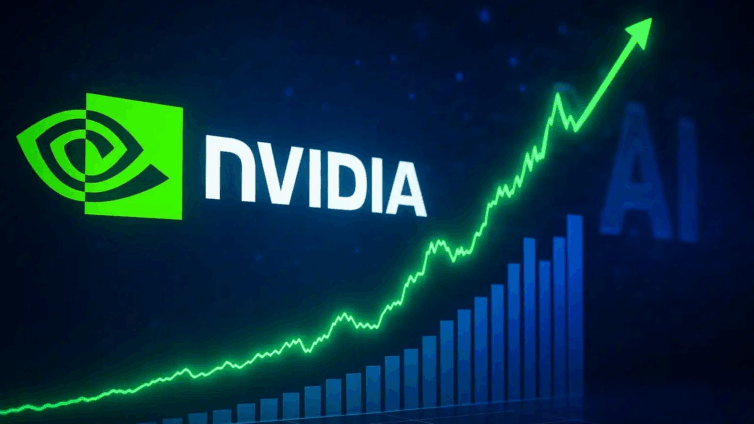
NEW YORK, NY — Nvidia, the undisputed champion of the artificial intelligence boom, crossed the unprecedented $5 trillion market capitalization threshold on Wednesday, October 29, 2025 (local time). The milestone, achieved just 78 trading days after hitting $4 trillion, underscores the staggering velocity of the AI revolution and the central role the chipmaker plays in it.
A Monumental Rise
Nvidia's share price surged 3.9% to $208.81 in late-morning trading on the U.S. stock market, briefly peaking at $212. A closing price above approximately $205 would secure the over $5 trillion valuation, a figure of extraordinary scale.
Comparative Value: To put the $5 trillion valuation into perspective, the figure surpasses the entire Gross Domestic Product (GDP) of nearly every country worldwide, excluding only the United States and China, based on IMF figures from the end of last year. This colossal value eclipses the annual economic output of major nations like Germany ($4.7 trillion) and Japan ($4 trillion).
Growth Trajectory: Driven by the global AI surge following the debut of ChatGPT in late 2022, Nvidia's stock has soared twelvefold over the past three years. The company's market cap milestones highlight its rapid ascent:
$1 Trillion: June 2023
$2 Trillion: February 2024
$3 Trillion: June 2024
$4 Trillion: July 2025
$5 Trillion: October 2025
The current market cap is also greater than the entire cryptocurrency market and roughly half the value of the companies constituting the European benchmark stock index, the Stoxx 600.
From Graphics to Industry Creator
Nvidia, which began as a niche graphics chip designer, has effectively transformed itself into the engine room of the global AI industry.
CEO Jensen Huang—a Taiwan-born executive who has led the company since its founding in 1993—has become a Silicon Valley icon. His advanced chips, notably the H100 and the new Blackwell processors, power countless large language models, including ChatGPT, making them a critical point in the technological rivalry between the U.S. and China.
The recent spike was fueled by CEO Huang's announcement at the GTC event in Washington, D.C., of $500 billion in new AI chip orders and plans to build seven new supercomputers for the U.S. government.
Analyst Confidence and Bubble Concerns
Despite wider concerns about potential overheating in the AI sector, analysts remain largely bullish on Nvidia. Stacey Rasgon of Bernstein noted that Nvidia still presents an "attractive valuation" compared to other AI firms, with significant potential for further earnings growth. Matt Britzman, a Senior Equity Analyst at Hargreaves Lansdown, hailed the $5 trillion mark not just as a milestone, but as a "declaration of its transition from chipmaker to industry creator."
However, caution remains. Matthew Tuttle, CEO of Tuttle Capital Management, warned that the current AI expansion relies on a few major companies funding each other's production capacity. He cautioned, "The moment investors begin demanding cash flow profits instead of production capacity announcements, some of these flywheels may halt."
Huang's Soaring Wealth
The monumental stock surge has propelled CEO Jensen Huang's personal wealth. Regulatory filings and Reuters estimates place the value of his Nvidia stake at approximately $179.2 billion based on the current share price, making him the world's eighth-wealthiest individual, according to Forbes' Billionaires List.
While Nvidia remains the dominant leader, competitors like Apple and Microsoft have also seen their market caps surpass $4 trillion in recent months. Investors are now keenly awaiting Nvidia's next quarterly results, scheduled for release on November 19.
[Copyright (c) Global Economic Times. All Rights Reserved.]






























